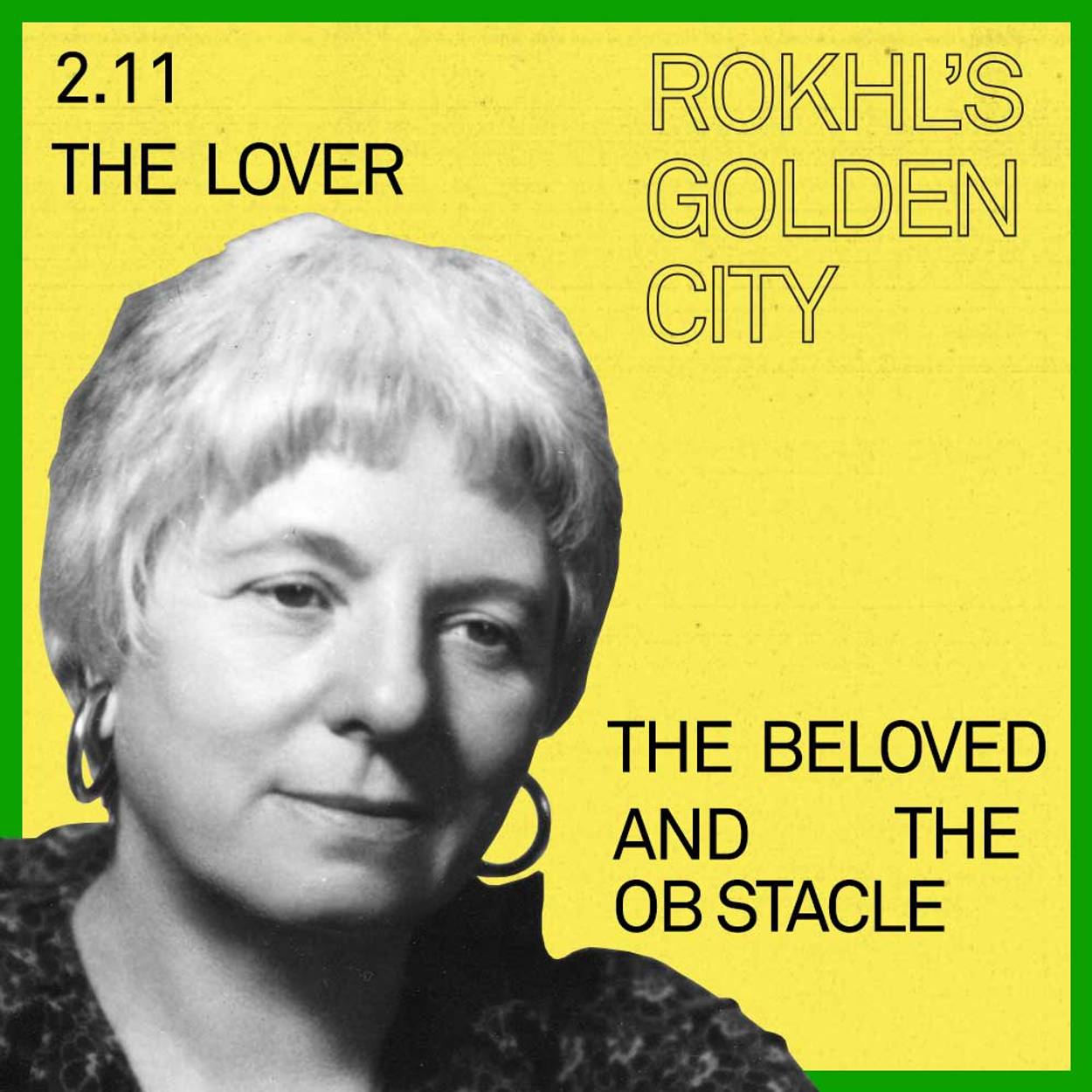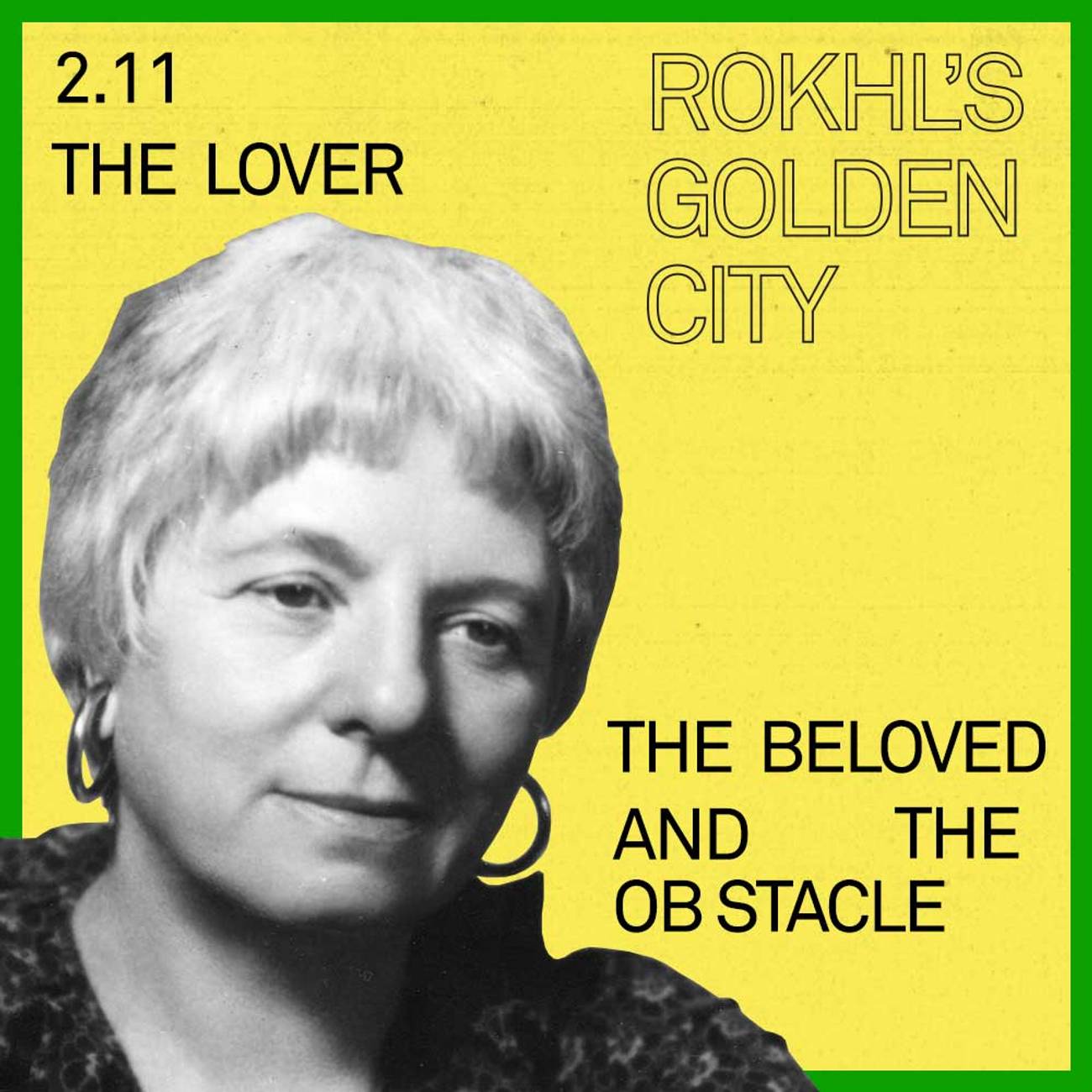Let’s Fall in ‘Libe’
Rokhl’s Golden City: Some of the best Yiddish love songs




All around New York City, snow lies heaped on the ground. At every corner, our “slush lagoons” are thriving, pandemic or no. While never my favorite month, this February feels particularly grim. And yet, tiny embers of life still burn hot. Two friends of mine, co-workers at a certain famous Yiddish institute, just announced their engagement, their “secret love” a secret no longer. And out of nowhere, at the beginning of February, the artist known as Beila dropped a breathtaking new EP of Yiddish songs, Paper is White. The album is deceptively simple; solo voice, with dreamy synth samples and keyboard accompaniment. The effect is warm and hypnotic.
You can’t get any further from the earnest vows of “Lomir beyde a libe firn” than the frenzied limerence of Nellie Casman’s “Yosl, Yosl.” I’m not sure why I love this song so much. The singer of “Yosl, Yosl” isn’t exactly enjoying herself. In fact, the imagery is full of suffering.
Es iz mir heys un kalt (I’m hot and cold)
un ikh ver groy un alt (I’m growing gray and old)
Her love is burning and she herself is about to expire from desire. “Yosl, Yosl” taught me the most charming phrase ikh krapir nokh dir, which means, more or less, I’m about to drop dead without you. Maybe what I really like about “Yosl, Yosl” is how it connects to my own nostalgia, a longing for a bygone age when I, too, was capable of generating such a furious amount of erotic energy.
Although I love Casman’s recording of her song, I adore the singing (and trumpet playing) on this version featuring Susan Hoffman Lankin-Watts and the Klez Dispensers.
And what lies beyond youthful obsession? Why pastry, of course. Being married means knowing that marital bliss is home baked, not store bought. “Hudl mitn strudl” (Hudl with her Strudel) tells us that the erotic appeal of a good strudel might even be too powerful for one marriage.
My countryman Dudl has a boarder,
Who is very much in love with his Hudl,
Because she cooks his supper very well.
And the boarder, how he is smitten,
And the supper refreshes him,
And he devours Hudl with his eyes.
You can find many, many versions of “Hudl mitn strudl,” though Benjy Fox-Rosen’s is still my favorite. The wildness of his setting suggests dangerously exciting sugar highs should one partake. And if all of that leaves you needing actual strudel, Boston’s Ezekiel’s Wheels made a music video for the song using Leah Koenig’s sweet fig & cheese strudel recipe. Geshmak.
Montreal’s multitalented Joshua Dolgin (aka Socalled) claims “Oy Avram” as his favorite. “Oy Avram” was on the first klezmer CD I ever owned, and I remember well luxuriating in its delicious (kosher) hamminess. This, to 18-year-old me, was the quintessence of Yiddish romance. “Oy Avram” is traditionally sung by a woman (Isa Kramer’s version is the most famous) but Dolgin includes it in his own repertoire, introducing it in concerts as “an ode to heteronormativity” and closing with a big showbiz kiss.“Oy Avram” is (in)famous for its over-the-top imagery (Me without you/Like a door without a doorknob). But with a gender flip, Dolgin steers the song away from melodrama, reinventing a classic with his own earnest playfulness.
The sweet frustration of nighttime courtship is a theme in some of the best Yiddish love songs. My friend Sorele Chiritescu cited “Brontshele” or “Ver klapt azoy” (Who’s Knocking?) as a favorite, partly for its use of kokhantshik, a Ukrainian word for romantic love that doesn’t exist in Russian. In the song, a man stands at his sweetheart’s door, pleading to be let in. The woman insists she cannot. What will her mother think? Chiritescu said the scenario reminded her of a particular type of Greek poem she studied in school, the Paraclausithyron, or “lament beside a door.” The Paraclausithyron appealed to the Greek poets as it condensed “the situation of love elegy to the barest essentials: the lover, the beloved and the obstacle …”
I would argue that the dark stillness of night is essential, too. Violinist Zoe Aqua told me the haunting “Indroysn iz finster” (It’s Dark Outside) is her favorite. Come on out, my sweet darling/I stand here waiting in the street/I’m alone and bewildered/Come on out, I want to talk to you/Come on out, I want to walk with you. Says Aqua, “It’s unclear if the walk actually happens, but I hope for the narrator’s sake that it does!” Me too.
Aaron Bendich, DJ of the weekly Jewish music radio program Laughing with Lizards, cites another of my favorites as his, too: Gebirtig’s “Reyzele.” A rather altogether too carefree young man, Dovid, approaches his lover Reyzl’s house by night. We know he’s not the most frum, as he does such un-Yiddish things as whistling. Nonetheless, he loves his Reyzele, loves the street where she lives, loves her mother and her dear sweet house. The song, said Bendich, “evokes a type of love so thorough and far-reaching that it moves me to tears. My zayde [Max, who recently passed at age 105] showed me this song, and it always makes me imagine his courting my bubbe, whose parents were religious and wanted a proper religious son-in-law. He didn’t think he’d make the cut but they told him ‘he was the best guy she ever brought home.’”
There are so many more songs I might point to as my favorite. Songs of anticipation, battle, brisket, and the all-too-muchness of being in love. But I’ll go back to what I said on Valentine’s Day 2019: “Lust is Jewish. Love, however, love is the ultimate in goyishe nakhes.” And yes, romantic love was amply represented in Yiddish folk song (and life). But it was in tension with the patriarchal imperatives at the heart of traditional Judaism. After all, the first mitsve is to be fruitful and multiply. As to with whom one fulfills it, the question is scarcely relevant. (And trust me, if you’re a single Jew of a certain age, this is a plain truth which has been most rudely delivered by your nearest and dearest.)
So I’ll leave you with this absolutely devastating duet by the glamorous husband and wife showbiz team of Benzion Witler and Shifra Lerer. The song is “Gedenk” (Remember) and its message is clear: Remember that love only lasts for the blink of an eye and happiness is bestowed by God. Never stop remembering and you’ll probably be happier.
LISTEN: Buy Beila’s dreamy new EP, Paper is White, over at Bandcamp. And make sure you tune in for the release party on Feb. 14. Information here.
ALSO: On Feb. 20, B’nai Havurah of Denver presents two gorgeous klezmer duos: Cookie Segelstein & Josh Horowitz and Ira Temple & Zoe Aqua, either one of which alone would be worth your time … Celebrate the publication of the new bilingual Yiddish-English edition of Michael Rosen’s We’re Going on a Bear Hunt on Feb. 24. Information here, and note that this will take place on London time … Close out February with a full day of klezmer workshops and performances at Jewstival2021, bringing together musicians and participants from Israel, Moldova, Russia, the United States, and more. Feb. 28 … March 5-7 is the annual KlezNorth Festival, featuring instrumental classes, Yiddish song, and plenty of dancing. Good news: It’s online and you can participate from anywhere in the world. Bad news: one less reason to head to the beautiful north of England. More information here … Apropos of love songs, on March 8, friend of the column Polina Shepherd leads a concert program on the theme of Russian songs about love in Yiddish, S’iz do azoy fil meydlekh sheyne (So many pretty girls here). Get tickets here … Oh, hey, did you see that YIVO is launching a brand-new event on Sunday afternoons called Yiddish Club? In addition to the many fine guests Shane Baker will be hosting, ani hakoten, yours truly, will be appearing on March 14.
Rokhl Kafrissen is a New York-based cultural critic and playwright.